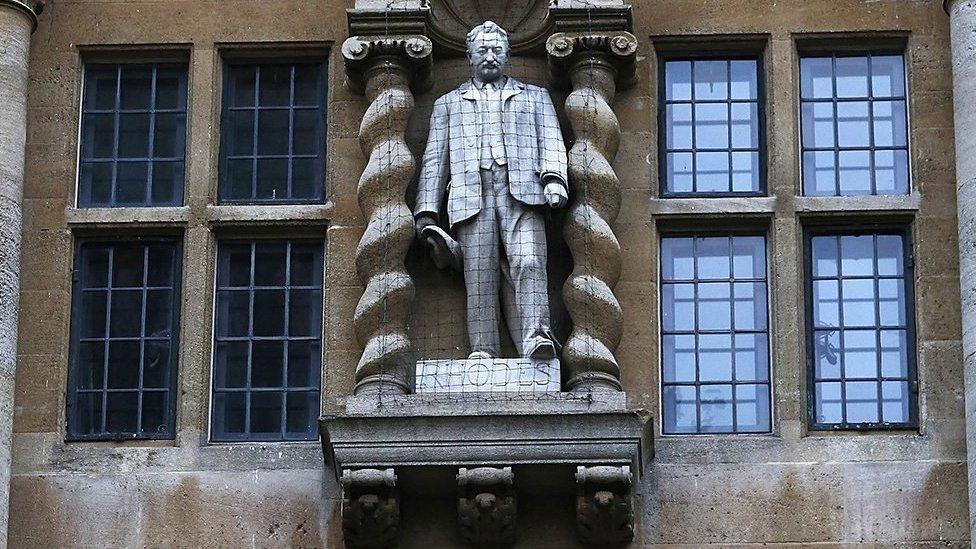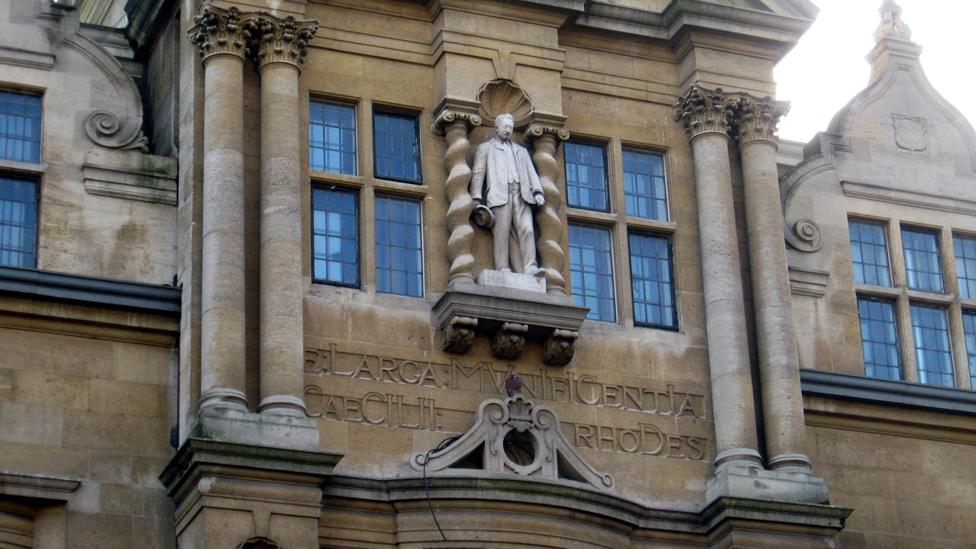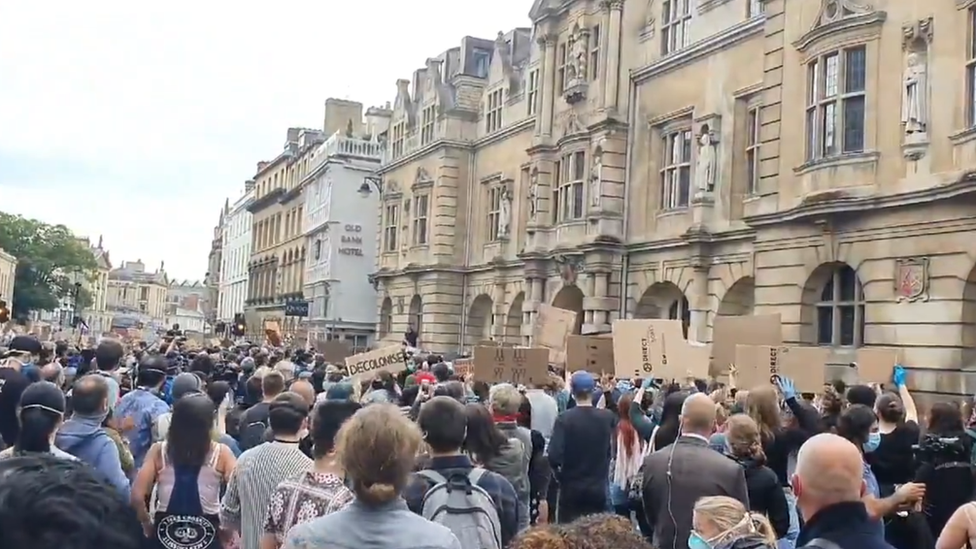Cecil Rhodes: Delay over statue removal 'heightening tensions'
- Published

Protesters intend to demonstrate outside Oriel College throughout the summer
Campaigners say the delay to remove a controversial statue of British imperialist Cecil Rhodes is "heightening tensions".
Oxford University's Oriel College has agreed to take it down, but an independent inquiry set up to deal with it is expected to take six months.
Rhodes Must Fall Oxford called the inquiry "redundant" and said it was compromising students' wellbeing.
Campaigners are currently taking part in a peaceful protest at Oriel Square.
They insist the issue should be resolved by the end of July and plan more demonstrations throughout the summer.
Allow X content?
This article contains content provided by X. We ask for your permission before anything is loaded, as they may be using cookies and other technologies. You may want to read X’s cookie policy, external and privacy policy, external before accepting. To view this content choose ‘accept and continue’.
A statement said: "While the governing body of Oriel College has expressed their wish to remove the statue of Cecil Rhodes, we believe this to be inadequate.
"We consider the establishment of a commission of inquiry to be redundant and incompatible with the city council's planning process.
"We will engage in peaceful demonstrations to disrupt the space until Oriel meets our demands to cover the statue or remove and transfer it to a secure facility while the college negotiates its permanent relocation and recontextualisation."

Protestors have been calling for the statue of Cecil Rhodes to be removed for several years

Thousands gathered in a protest on 9 June calling for the removal of the statue
However, the college, which voted to launch the independent inquiry, said there were no plans to remove the statue until it was concluded.
The inquiry will look into the legacy of Cecil Rhodes, which also includes scholarships at the university and consider wider issues, such as support for black and ethnic minority students and a commitment to "diversity".
A spokesman said: "[The governors] expressed their wish to remove the statue of Cecil Rhodes... this is what they intend to convey to the independent commission of inquiry."
He added: "The commission will advise on next steps, after a thoughtful, considered process, but relevant stakeholders such as Historic England and Oxford City Council will be consulted, with the commissions also expected to advise on guidance around planning permission."
Earlier, when asked about Rhodes on the Today programme, Nelson Mandela's widow Graca Machel said removing it would not resolve the "ills of the past".
She said: "I know this is controversial. We need to have the memory and some of those symbols reminding us, and they make the memories still vivid."
- Published18 June 2020

- Published18 June 2020

- Published17 June 2020

- Published11 June 2020

- Published11 June 2020

- Published10 June 2020

- Published1 April 2015
